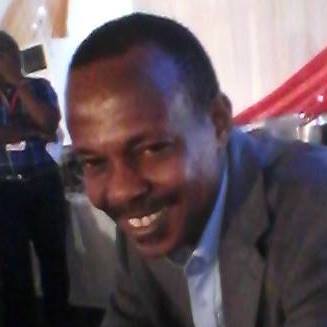By OKWUDILI Ojukwu-Enendu
In my school days in the early 1980s, the introduction of my alma mater, the University of Lagos, at inter- collegiate events was always followed by shouts of ‘Eko for Show’ from students of other (read rural) schools. The epithet, ‘Eko for Show’, implied that dear old Unilag was all ‘show’, with no substance. Some of those students dared believe the expressed sentiment. But we, Unilag students, knew otherwise, and regarded that as inferiority complex from ‘bush’ schools. And we often roasted them, in academics, sports or whatever. Lagos was the political, business and social capital of Nigeria. It housed the main entry port to Nigeria, the Murtala Muhammed International Airport. So, social innovations hit Lagos first, before diffusing into other parts of the country.
We, the Great Akokites ( as we hail ourselves) were unapologetic about our style, but that didn’t rob us of our substance. What competing students often failed to realize was that Unilag was the most-desired university in Nigeria at the point of entry. Invariably, only the most competitive got the admission – that was before ‘magic’ engulfed the system. Today, there is another shout of ‘Eko for Show’, which only very few can defend with incipient performance. It is the government of President Bola Ahmed Tinubu.
Practically all the sources of revenue to the federation are peopled by his kinsmen. I saw in The Observer Newspaper, the photograph of a conference of the Federal Inland Revenue Service (FIRS) where the target for Fiscal 2024 was set. The three principal officials at the meeting, the Chairman, FIRS, Dr Zach Adedeji, Accountant General of the Federation, Oluwatoyin Madein and the Minister of Finance and Co-ordinating Minister for the Economy, Mr Wale Edun, were all Yoruba – as if no other part of the nation had economists and accountants. Be that as it may, the more annoying part is that the ethnic trio are doing neither the government nor the governed much good. While speaking signature grammar and setting ever higher tax targets, they appear oblivious of the fact that the masses of Nigerians are roasting.
Eight months of Tinubu’s government has brought the masses untold hardship unleashed by the verbal dismissal of the petrol subsidy and tinkering with the extant foreign exchange regime. Core inflation is about 30%, while food inflation is heading towards 40%. Exchange rate has doubled, and the elderly and infirm who are on drug-support are staring the scepter of slow, painful death in the face. The masses have reacted with protests in Niger, Kano and even Ibadan, part of the home base of the president. But the government remains unpulsed. While the masses are asking for affordable food today, the government is bent on feeding them with long term hope of macroeconomic convergence, all things being equal.
As Central Bank Governor, Dr Olayemi Cardoso (principal member of Tinubu’s Eko team) told the House of Representatives committee the other day, he was working on inflation-targeting. This involves co-ordination between the monetary and fiscal authorities to reduce the economic burden of the masses. But apparently, Edun who heads the fiscal side of things was yet to hear him, as taxes keep rising on all fronts. Without mentioning it, satisfying the World Bank and the International Monetary Fund (IMF) with beautiful macroeconomic indices appears to be the top priority of the government.
But who really cares about macroeconomic orthodoxy while hunger runs riot in the land? When the people are in a desperate situation, who dares hang his hope on all things being equal? And who cares about the long run when we are unsure of the short run; as the saying goes, in the long run, we are all dead! And while Cardoso plans his inflation-targeting attack, the IMF has apparently marked his script upfront warning that Nigeria’s inflation rate could hit 44% without sufficient monetary policy tightening. And if core inflation should reach an unprecedented 44%, food inflation would most likely cross the 50% point. That may trigger significant economic and social trouble.
The trouble with this government is that it has done nothing to give the people hope. When Godwin Emefiele was the CBN governor, his varied interventions in various sectors gave the people hope and produced tangible results. In the agricultural sector, for instance, the bank’s Anchor Borrowers Programme (ABP), financed and empowered some 4.5million smallholder farmers for the production of food crops, as well as cocoa, cotton, cattle etc. Improved seedlings were deployed, and output surged. Yield per hectare for paddy rice and maize rose from an average of 1.5 million to 4.5million tonnes per hectare under the scheme. Milling capacity for rice was strategically raised from just seven integrated mills in 2015 to 72 in 2023.The result was that Nigeria’s main food import bill dropped from US $3.23 billion in 2014 to US $0.59 billion in 2018. The rice and wheat import bills dropped by 98% and 95% respectively.
This salutary result was achieved by Emefiele whom this government is persecuting with unusual energy and venom. And what has Cardoso in place of these? Just a promissory note of doubtful quality that he couldn’t even speak through but had to read to the Reps committee. Power, as has been shown, can be grabbed, snatched and taken. But governance is another kettle of fish. Grandstanding won’t do.
Ojukwu-Enendu wrote in from Lagos

